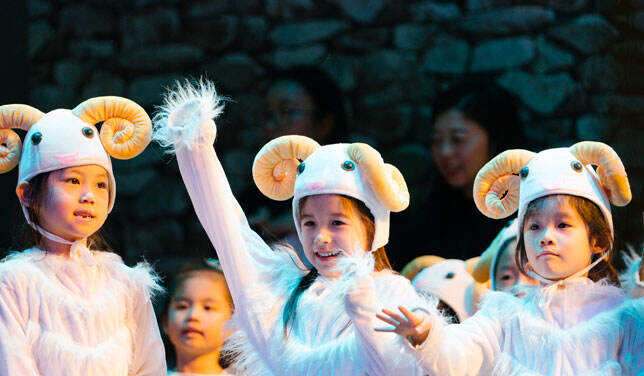We need tomorrow's schools now, not yesterdays
 Schools in China and across the world are on the threshold of a revolution. It has become increasingly apparent that our schools were designed for an industrial model that is no longer appropriate for the 21st Century.
Schools in China and across the world are on the threshold of a revolution. It has become increasingly apparent that our schools were designed for an industrial model that is no longer appropriate for the 21st Century.
The modern school model was developed in Britain during the Industrial Revolution. It was designed to give the working class the skills to work in factories, and the elite the skills to run government, industry and the military. The system revolves around a teacher standing at the front of the class and passive students writing down what they are saying and then reproducing it in exams, which then grades the students according to their academic abilities. Computers started making an impact on schools 25 years ago. But their contribution has been to support rather than to challenge the existing model of schooling. Instead of writing on a board at the front of the class, with chalk and a rubber, the teacher now displays computer projected images. This allows class to move at a quicker rate, but it has not altered the basic patterns of learning.
Three factors are beginning to profoundly challenge this existing model and I will take each of them in turn. Within 25 years, schools will be, and will have to be, completely unrecognisable.
The first revolution is coming through changes in the international job market. Harvard professor argued in a paper published in August that since 1980, the jobs with the biggest growth and increases in salary have been those that require a high degree of social skills. Women, he finds, have disproportionately benefitted from the economy’s shift towards interpersonal, collaborative skills, at which women have well-documented advantages. Employment has fallen in occupations such as statisticians, actuaries, and chemical technicians, that require the cognitive skills on which exams focus. These trends will likely continue as the economy becomes more automated.
Quoted from Julia Thomas, the current Master of Wellington College UK, ‘there are a huge number of aptitudes computers don’t have which, in the digital age, are becoming increasingly valued and important. The very best schools will continue to educate in a way that values soft skills knowing that, despite the lack of recognition in the assessment system, the skills their students learn will hold them in good stead for their futures.’
Furthermore, many jobs in sales, customer services, catering, leisure, factory and machine operation, and even skilled trades, will be lost in decades to come. Andy Haldane, the Chief Economist at the Bank of England said in a speech on the 12 November that the world is on the edge of a Fourth Industrial Revolution. This would be characterised by ‘new-age machines [that] will be thinking as well as doing, sensing as well as sifting, adapting as well as enacting.’ However, these machines will replace millions of global jobs. He estimates that a third of British jobs might be at risk from automation over the next few decades. This would put some 15 million jobs in jeopardy in the UK, and in the US, the figure is 80 million. Therefore, nearly 100 million jobs would be lost in just two countries. Schools will need to respond to these changes in order to provide the education that students need to prosper in this changing world.
The second revolution is coming from teachers, students and parents. They are rebelling at the nature of modern schools. Teachers resent losing their professional status and becoming mere operatives in a factory process of exam results. They resent the loss of scope for individuality and personal style in teaching. They are becoming like robots. Parents increasingly resent the obsession in schools on teaching for exams at all costs and the pressure that this is putting on their children. They suspect, and they are right, that the school cares more about its league table position than their children, who are reduced to mere widgets in a process. The students themselves are finding schools dull and reactive. They are not taught to think for themselves, but merely to learn about the right answers, as expected by examiners. Their intellect and imagination are involved far less than in the computer games that they crave to play and that engage them at a far deeper level than the dull and unworthy lessons.
The third revolution is the most profound of all, which I will outline in my book to be published next year, The Fourth Education Revolution. I am referring to the development of Artificial Intelligence (AI), which means that students will be able to benefit from personalised learning. They will sit in front of screens with cameras that will read their facial expressions, and their lessons will be a series of learning experiences. If they are unable to get the right answer, computer programmes will be able to identify the problem and adapt the learning, in much the same way that teachers should do. Teachers though typically have classes of 20, 30 or 50 in front of them, and often cannot provide the sort of individual response that might be possible with a computer. We are already beginning to see this new pattern of learning emerge, albeit not in the classroom. The technology will not be expensive. All that will need to happen is for every student to have a keyboard and screen in front of them, together with a camera or sensor. The learning will be quicker and more intense, allowing children to study at their own pace. People who in the past had their learning stopped when they hit a block would have those blocks removed. Those who found mathematics, physics or geography hard will find their learning greatly enhanced, and with that success will come enjoyment, and a determination to rise to fresh challenges.
Does that mean that teachers will no longer be required? There is some evidence that the demand for secondary school teachers may decline a little. Research at present suggests that primary school teachers will be needed in the same numbers to help guide and shape the young people. The teacher will still be required to encourage, ensure order and to gain an overall view of individual progress. Gone will be the days where teachers had to sit up for hours every evening marking scripts laboriously, because computers will be able to grade this work themselves. Schools will be able to provide students clear guidance with what they need to do to improve. Successful learning will be programmed literally into the heart of the school system. Gone too will be the bane of every teacher’s life, the writing of reports, when tired teachers have to compile hundreds of reports, most of which are little read or acted upon by parents.
We are on the verge of an education revolution. The learning of subjects will be far quicker and more efficient. As a result, there will be more opportunities during the school day for class activities, in which teacher professionalism will be at a premium. At Wellington College in the UK, the most improved school in Britain, as measured by A-level results over the last decade, and from which I have just retired as head, we tried to develop eight different types of intelligence. This approach owed much to the work of the great Howard Gardner of Harvard University. If these intelligences are not developed in students when they are at school, they may well remain dormant for the rest of their lives.

The eight intelligences are divided into four sets of pairs. The first pair are the traditional academic capabilities of literacy and logic, which provide the wisdom to live a good life. The second pair are the personal and social intelligences, which refer to the ability to work well with people and to bring out the best in others. The third pair are the traditional extracurricular activities of the cultural and the physical. Developing these skills is vital if we are to turn out well rounded young people. The final pair are the moral and spiritual intelligences, the first of which helps us to live in a moral universe, the second which permits the deep understanding of the world’s awe and beauty, and of the imagination, which helps give life depth and meaning.
The schools that will flourish over the next few years are those that best understand the revolution which is about to hit them. Nobody should be afraid of the future. The teaching will be far broader, the education more stimulating and wide ranging. Schools always should have been places of enlightenment and enrichment. The coming revolution will allow all schools to become the places for which, so far, they have only been for a narrow minority.
 Writer’s Bio Introduction: Sir Anthony Seldon is a political historian, author and commentator on education and contemporary Britain. He is also Vice-Chancellor of the University of Buckingham.
Writer’s Bio Introduction: Sir Anthony Seldon is a political historian, author and commentator on education and contemporary Britain. He is also Vice-Chancellor of the University of Buckingham.
He was previously the 13th Master (headmaster) of Wellington College, one of the country's most famous and historic independent schools. He was co-founder and first Director of the Institute of Contemporary British History. He is also author or editor of over 35 books on contemporary history, politics and education.
相关资讯













